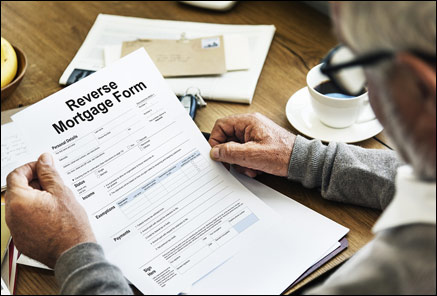
Are there people that a bankruptcy cannot help? Unfortunately, yes. There are many well deserving people that are beyond the help of the bankruptcy code. There are waiting periods between bankruptcies; so, if you have recently filed, then you may not be able to file again for a while. Also, there are folks that have gotten so far behind on their mortgages that, even with a bankruptcy, they would not be able to afford their mortgage payment or Chapter 13 plan payment. Sometimes, folks come to me with large amounts of non-dischargeable debt, like taxes, child support, or student loans, and there is not much I can do for them. Aside from these situations, there is one type of deserving person that bankruptcy cannot help.
With Virginia’s very low homestead exemption, particularly with elderly homeowners that have paid off their home, there may be no bankruptcy remedy available. Imagine the scenario where we have a 78-year-old, widowed, female with $45,000.00 in unsecured debt, including medical bills, $1,200.00 monthly Social Security income, and a house that is free and clear of any liens. She is entitled to a $10,000.00 Homestead Exemption (HSD), but other than that, her house is subject to being taken and sold by the Trustee for the benefit of her creditors. She can’t file a Chapter 13 because she can’t afford the Chapter 13 plan payment on her social security income. She can’t file a Chapter 7 because she would lose her house to the Chapter 7 Trustee because it is not exempt.
At 78 years old, why does she only have a $10,000.00 exemption? Typically, the Virginia Homestead exemption is only $5,000.00 per person, but because of her advanced age, she gets an additional $5,000.00. She was married for over 50 years, why did she lose her Tenancy by the Entirety’s exemption? Her Tenancy by the Entireties exemption may have protected 100% of the equity in her house had her husband not died. In Virginia, you can only protect your real estate using the Tenancy by the Entireties exemption if you are married. Once your spouse dies, regardless of how long you were married, or how long you enjoyed the protection of the Tenancy by the Entity exemption, you lose that exemption, and then the most you can protect is the $10,000.00 on your HSD exemption.
In many cases, this is a double whammy for the surviving spouse, as she lost, not only her Tenancy by the Entireties exemption, but half of the pension or social security income she was depending on to make ends meet.
How do I advise a woman like this? Unfortunately, there is no good solution. However, the first thing I would advise her to do is apply for a reverse mortgage. While there may be drawbacks down the line to having a reverse mortgage, in this situation, you deal with the problem that is staring you in the face: the constant hounding of debt collectors. A reverse mortgage allows the debtor to borrow money against the home’s equity, but she is not required to pay it back while she still lives there. In most cases, the debtor never pays back the mortgage. Rather, the home reverts to the mortgage company upon the borrower’s death. A debtor receiving a reverse mortgage may take the cash in a lump sum or may take periodic payments. While a reverse mortgage may ultimately reduce the debtor’s legacy or complicate Medicaid planning, it will allow the debtor to have a better life style in her golden years.
One very important fact to remember when getting a reverse mortgage is that you may still be responsible for real estate taxes. If you fail to pay the real estate taxes after getting the reverse mortgage, then either the government or the mortgage lender could conduct a foreclosure sale on your property. Many cities and states have programs that allow elderly folks with low incomes to be exempt from paying real estate taxes; if you fall into this category make sure that you check into those programs and see if you qualify for tax relief.
If the debtor chooses a reverse mortgage with a lump sum payout, then I do not recommend that she just pay off her unsecured debts. I recommend that she, or her attorney, contact her creditors and offer them 50% payoffs. In most cases, the she would be able to settle $45,000.00 in credit cards and medical bills for about $25,000.00 – leaving more for her to live on.
If a reverse mortgage isn’t right for her, then I would give her tips on how to avoid collection tactics. Since she has a house that is easily found in the city land records, it will be difficult to hide that from her creditors. But, depending on what her goals are, it may not matter. Based on her age, health, and other factors, it may be a good idea to transfer the house to her children. Keep in mind, it may be unlawful to transfer property solely to avoid creditors; but it is not illegal to transfer it for estate planning purposes.
This all too common tragedy could be avoided if Virginia’s legislature would amend the outdated Homestead Exemption, which has not been substantially changed since the late Seventies. An updated Homestead exemption could reflect something more like what the rest of the States offer their elderly debtors. Unlike Virginia, many States have homestead exemptions that protect the equity in primary residences up to and exceeding $100,000.00.


